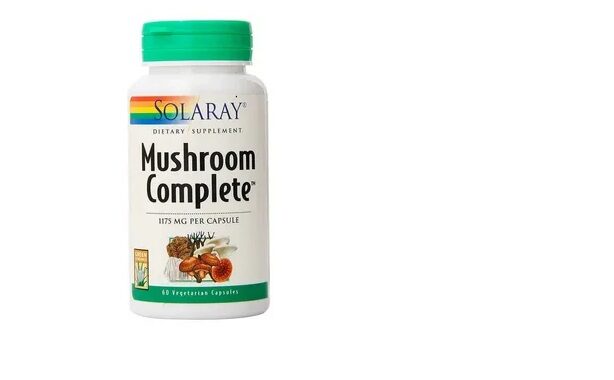Reishi mushroom, scientifically known as Ganoderma lucidum, is a species of fungus that has been revered for centuries in traditional Chinese medicine (TCM) for its potential health benefits and therapeutic properties. Reishi mushrooms, also known as Lingzhi in Chinese, are characterized by their distinctive kidney-shaped caps and glossy, reddish-brown color. Reishi mushrooms grow on decaying hardwood trees and have a long history of use as a natural remedy for various ailments. In this comprehensive guide, we will explore the diverse benefits of reishi mushroom supplements, including their historical uses, active constituents, and current scientific evidence supporting their efficacy.
Understanding Reishi Mushrooms
Reishi mushrooms have been used in TCM for over two thousand years, where they are revered as the “mushroom of immortality” and prized for their ability to promote longevity and vitality. In TCM, reishi mushrooms are classified as a superior tonic herb that nourishes the three treasures of the body: Jing (essence), Qi (vital energy), and Shen (spirit). Reishi mushrooms contain a variety of bioactive compounds, including polysaccharides, triterpenes, sterols, and antioxidants, which contribute to their pharmacological effects.
Immune Modulation
One of the primary benefits of reishi mushroom supplements is their ability to modulate and strengthen the immune system. Reishi mushrooms contain polysaccharides, such as beta-glucans, which have been shown to stimulate immune cell activity, enhance immune function, and promote immune system balance. By activating macrophages, natural killer cells, and other immune cells, reishi mushroom supplements help the body defend against pathogens, viruses, and foreign invaders. Additionally, reishi mushrooms contain triterpenes, such as ganoderic acids, which have been shown to have anti-inflammatory and immunomodulatory effects, further supporting immune system health.
Adaptogenic Properties
Reishi mushroom supplements exhibit adaptogenic properties, helping the body adapt to stress and maintain homeostasis. Adaptogens are a class of herbs and mushrooms that help the body cope with physical, emotional, and environmental stressors, thereby promoting resilience and vitality. Reishi mushrooms help regulate the hypothalamic-pituitary-adrenal (HPA) axis, the body’s primary stress response system, and modulate cortisol levels. By reducing stress-induced cortisol release and promoting relaxation, reishi mushroom supplements may help alleviate symptoms of stress, anxiety, and fatigue, and improve overall resilience to stressors.
Anti-inflammatory Effects
Reishi mushroom supplements possess potent anti-inflammatory properties that may benefit individuals with inflammatory conditions such as arthritis, asthma, and autoimmune disorders. Polysaccharides and triterpenes found in reishi mushrooms have been shown to inhibit pro-inflammatory cytokines and enzymes, thereby reducing inflammation and alleviating pain and swelling. Additionally, reishi mushrooms contain antioxidants such as ergothioneine and glutathione, which help neutralize free radicals and reduce oxidative stress, further contributing to their anti-inflammatory effects.
Cardiovascular Support
Emerging research suggests that reishi mushroom supplements may support cardiovascular health and reduce the risk of heart disease. Reishi mushrooms contain bioactive compounds such as triterpenes and sterols, which have been shown to have hypolipidemic (cholesterol-lowering) and hypotensive (blood pressure-lowering) effects. By reducing LDL (“bad”) cholesterol levels, inhibiting platelet aggregation, and promoting vasodilation, reishi mushroom supplements may help improve lipid profiles, reduce the risk of atherosclerosis, and support overall cardiovascular function. Furthermore, reishi mushrooms have been shown to have antioxidant and anti-inflammatory effects, which may further protect against cardiovascular disease development.
Liver Detoxification
Reishi mushroom supplements may support liver health and promote detoxification due to their hepatoprotective properties. Reishi mushrooms contain antioxidants such as triterpenes and polysaccharides, which help protect liver cells from oxidative damage and reduce inflammation. Additionally, reishi mushrooms stimulate bile production and improve bile flow, aiding in the digestion and metabolism of fats. By supporting liver detoxification pathways and enhancing liver function, reishi mushroom supplements may help optimize liver health and promote overall well-being.
Cognitive Enhancement
Reishi mushroom supplements may have beneficial effects on cognitive function and brain health due to their neuroprotective and antioxidant properties. Polysaccharides and triterpenes found in reishi mushrooms have been shown to protect neurons from oxidative damage, reduce neuroinflammation, and enhance synaptic plasticity. Additionally, reishi mushrooms contain compounds such as ganoderic acids, which have been shown to have neuroprotective effects and improve cognitive function. While further research is needed to fully elucidate reishi mushroom’s effects on cognition, preliminary evidence suggests its potential as a natural aid for maintaining brain health and cognitive function.
Dosage and Safety Considerations
Reishi mushroom supplements are generally considered safe for most individuals when taken at recommended doses. However, it is essential to consult with a healthcare professional before starting any new supplement regimen, particularly if you have underlying medical conditions or are taking medications. Pregnant and breastfeeding women should use caution and consult with their healthcare provider before using reishi mushroom supplements. Common side effects associated with reishi mushroom supplementation are rare but may include gastrointestinal upset or allergic reactions in sensitive individuals.
Conclusion
In conclusion, reishi mushroom supplements offer a range of potential health benefits, including immune modulation, stress adaptation, anti-inflammatory effects, cardiovascular support, liver detoxification, cognitive enhancement, and more. While scientific research on reishi mushroom’s efficacy is ongoing, its long history of traditional use in TCM and promising preliminary evidence suggest that it may serve as a valuable natural remedy for various health concerns. As with any dietary supplement, it is essential to consult with a healthcare professional before incorporating reishi mushroom into your wellness regimen, especially if you have underlying medical conditions or are pregnant or breastfeeding. By harnessing the therapeutic properties of reishi mushroom supplements, individuals can explore natural approaches to support their health and well-being.
- Vessel’s Core Series Unveiled: My Personal Take on Their Stylish and Functional Vapes! - August 2, 2024
- Waxing Poetic: My Enlightening Journey with Glowbar London’s CBD Solid - May 16, 2024
- Benefits of Gravel Root Supplements - April 1, 2024

